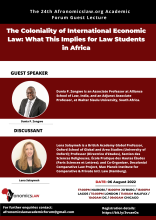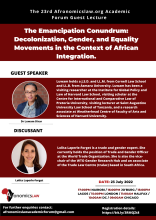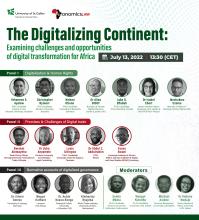African Union at 20: The Emergence of African Union Law and its Role in the Integration Effort
This short piece explores the role of norm generation at the continental level in Africa and its impact on the integration effort. It examines notable developments in Africa that impact the normative and legal developments, including colonisation, Pan-Africanism, the formation of the Organisation of African Unity (OAU) and the African Union (AU). Particular attention is paid to the AU Constitutive Act and its significance.


